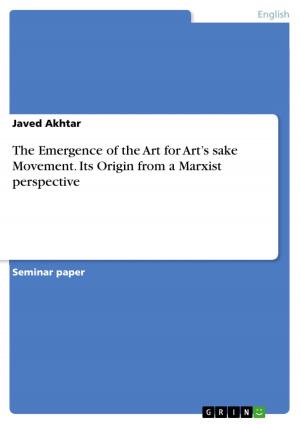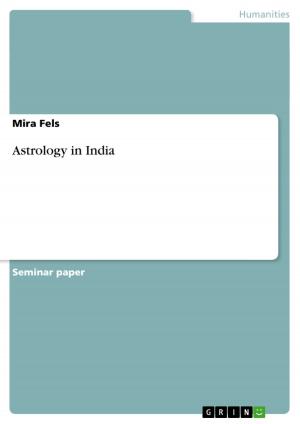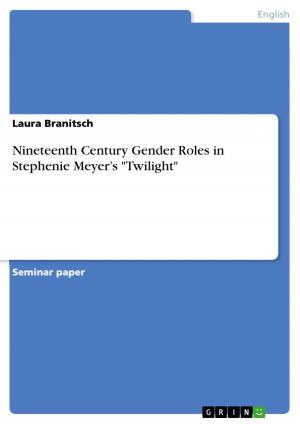Hamilton Island. The Innovative Cultural Enterprise
Business & Finance, Industries & Professions, Hospitality, Tourism & Travel| Author: | Nick Birch | ISBN: | 9783656884088 |
| Publisher: | GRIN Publishing | Publication: | January 26, 2015 |
| Imprint: | GRIN Publishing | Language: | English |
| Author: | Nick Birch |
| ISBN: | 9783656884088 |
| Publisher: | GRIN Publishing |
| Publication: | January 26, 2015 |
| Imprint: | GRIN Publishing |
| Language: | English |
Research Paper (postgraduate) from the year 2015 in the subject Tourism, grade: 1.1, Central Queensland University, course: Cultural Entrepreneurship, language: English, abstract: Globalisation has meant that the offerings of many destinations are increasingly homogenous. Branding provides a way of creating a unique identity through relationship building and emotional appeal, rather than differentiation on the basis of functional qualities. While destination branding draws on principals from product marketing there are some important differences. This is a more obvious requirement in some sectors, such as tourism, where countries develop hospitality industries and infrastructure such as convenient airport facilities. However, such marketing concepts increasingly apply to countries as a whole. Nearly all successful communities can quickly identify their 'brand.' They draw on their comparative advantages to find ways of encouraging growth by attracting the people, businesses, education service and investment they need. (Hulsbosch, 2011) Hulsbosch (2011) suggests acting and thinking globally as one of his destination branding tips, advising that brand identity and all related promotional activities must appeal across cultural groups. Cultural tourism gives visitors the opportunity to understand and appreciate the essential character of a place and its culture as a whole, including: •History •People and their lifestyle •Cultural diversity •Arts and architecture •Food, wine and other local produce (Foo & Rossetto, 1998, p.63)
Nick Birch is a Media Production Professional with a Masters of Creative Enterprise. He has been working in the creative industries since 2000: mainly as an editor for local and international television series, commercials, documentaries, short films, corporate projects and music videos. He also produces, directs, shoots, sound-designs and writes. His extensive experience and natural affinity with clients and their vision makes him a favourite to work with, seeing the return of many satisfied customers. He has worked with TV networks, Hollywood producers, radio stations, mining magnates, airlines, actors, singers, dancers, lawyers, charities, designers, construction, children, animals, sports, tourism and even a volcanologist. He believes in balance, loyalty, freedom, humour and truth-values which permeate his livelihood. His enterprise is to make your story rise and shine in the most admirable, genuine, spectacular and engaging style possible. You can see some of his work at nickbirchstudio.com
Research Paper (postgraduate) from the year 2015 in the subject Tourism, grade: 1.1, Central Queensland University, course: Cultural Entrepreneurship, language: English, abstract: Globalisation has meant that the offerings of many destinations are increasingly homogenous. Branding provides a way of creating a unique identity through relationship building and emotional appeal, rather than differentiation on the basis of functional qualities. While destination branding draws on principals from product marketing there are some important differences. This is a more obvious requirement in some sectors, such as tourism, where countries develop hospitality industries and infrastructure such as convenient airport facilities. However, such marketing concepts increasingly apply to countries as a whole. Nearly all successful communities can quickly identify their 'brand.' They draw on their comparative advantages to find ways of encouraging growth by attracting the people, businesses, education service and investment they need. (Hulsbosch, 2011) Hulsbosch (2011) suggests acting and thinking globally as one of his destination branding tips, advising that brand identity and all related promotional activities must appeal across cultural groups. Cultural tourism gives visitors the opportunity to understand and appreciate the essential character of a place and its culture as a whole, including: •History •People and their lifestyle •Cultural diversity •Arts and architecture •Food, wine and other local produce (Foo & Rossetto, 1998, p.63)
Nick Birch is a Media Production Professional with a Masters of Creative Enterprise. He has been working in the creative industries since 2000: mainly as an editor for local and international television series, commercials, documentaries, short films, corporate projects and music videos. He also produces, directs, shoots, sound-designs and writes. His extensive experience and natural affinity with clients and their vision makes him a favourite to work with, seeing the return of many satisfied customers. He has worked with TV networks, Hollywood producers, radio stations, mining magnates, airlines, actors, singers, dancers, lawyers, charities, designers, construction, children, animals, sports, tourism and even a volcanologist. He believes in balance, loyalty, freedom, humour and truth-values which permeate his livelihood. His enterprise is to make your story rise and shine in the most admirable, genuine, spectacular and engaging style possible. You can see some of his work at nickbirchstudio.com















